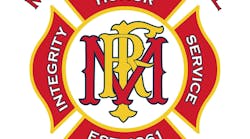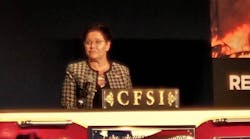I must be honest with you, there are times when I have rocked at being a leader and supported an individual or group of people in the most difficult of times, and then there are those times when I have failed those I led. I failed because, at that given point in time, I quite simply sucked at leading and communicating. With this said, I have learned from my mistakes, those of others and recognize yours too, for this is truly how we grow and better serve others—we mess up, we learn from it and we get better at it.
Two nuggets
I have been given many golden nuggets of information. The two that stand out the most: 1) Just because you’re right doesn’t make it OK to say, and 2) people do not care how much you know until they know how much you care. These two nuggets of wisdom were, and still are, very profound. I just wish I received this advice 5, 10, 15 or even 20 years earlier. But what do they mean?
The first nugget—just because you’re right does not make it OK to say—simply means don’t be a negative (a jerk), and don’t throw the other person under the bus just because you can. Always look for the opportunity to build someone up rather than tear that person down.
Using a structure fire as an example, we all know that even on the best of calls, some things could have been approached or done differently. So rather than just pointing out how badly someone may have made a mistake, why not use that opportunity to build them up and introduce them to the other options that may have been available and why those options should be taken into consideration the next time. Did you notice I did not say what they should do next time? These types of messages are better received when they are not in the form of absolutes, especially in terms of fireground tactics. When you discuss something after the fact, you have all the information, which was likely not the case at the time of their decision. As such, it is better to have a conversation on what happened and what could be done differently the next time around. Seek first to understand and then coach them to success.
The second nugget—nobody cares how much you know until they know how much you care—is, at times, a conundrum for the fire service. Why? Because we have egos, and sometimes, showing that you care is mocked, ridiculed or viewed as a weakness. I’ve done it. Most of the time it was done in jest; however, when this is repeated, the playful nature is removed, and the persona of a non-compassionate person is created. As a leader, formal or informal alike, the last thing you want is to be labeled as a person who does not care about the people around them. How many times have you been present when the new member of the team was being indoctrinated into the firehouse through the traditional ways, and you could see that it was demoralizing to the person, and yet you said nothing? Been there, done that. We preach that we are a family, brothers and sisters, but when convenient, we throw that out the window. At times, we are a false brotherhood and sisterhood; our actions do not support our words. You as the leader must have the courage to preach the brotherhood and sisterhood to everyone who will listen.
Final thoughts
Your journey as a leader begins the first day you start working. How you interact with your brothers and sisters will follow you throughout your career. While it is understood that maturation will occur, and your views and approaches will develop and evolve based upon your experiences, education and exposure to various situations, how you approach things will determine the outcome. What I have learned, sometimes through painful teachable moments, is that the goal of a leader is to support those around them by looking for opportunities to build up someone rather than being part of a process that tears them down. For clarification, this does not absolve the leader from holding people accountable for their actions; it simply means that leadership is dynamic and there is no one right leadership style. You must be compassionate, you must be aware, you must be firm, and you must be absolute. In being compassionate, you are fair and judge the situation based upon the facts. In being aware, you simply understand the facts as they present themselves, and you seek out the facts you do not have. In being firm and absolute, you follow through and have the courage of your convictions. Never fall into the trap of going the easy or popular route. Do what is right; just do it the right way.
Stay low, stay safe and train everyday!






